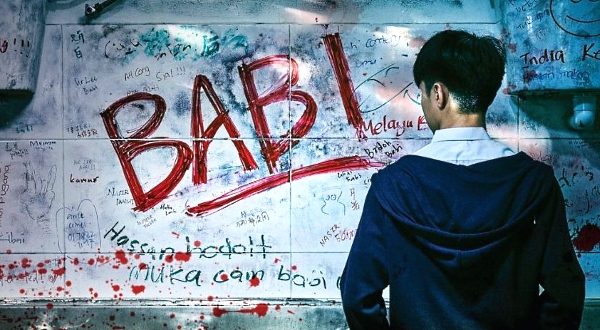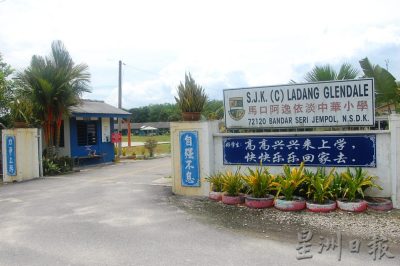By Bryan Lai Thiem Wah
A Taiwanese friend boasted to me lately that he had seen Namewee's Babi. And what made him so elated was that he had seen a movie banned in Malaysia while people like me did not get to see it in Malaysia!
As a movie buff, I instantly looked up for some information about this film and tried to find out why it had been banned.
But as I went into it, I found myself feeling somewhat disturbed.
As seen from the Namewee channel on YouTube, the Babi trailer was first uploaded about a month ago. In it, it's mentioned in both English and Mandarin that this is a "banned Malaysia film", the exact reason why my Taiwanese friend has bragged to me.
Then here comes the problem. From the information I've found on the net, the director has said admittedly that the "secretly made" movie has not had any permit applied and was actually not intended for screening here in Malaysia. So why is it a "banned" film if it has not been intended for screening here in the first place?
Take the Matilda Tao talk show uploaded four weeks ago, for instance, the director admitted during an interview with the famous Taiwanese singer-turned-TV host, "I didn't even bother to apply for a permit for this movie.. I didn't even have any plan to have it screened… I made the film just for the film fest."
If a movie has not been intended for screening in Malaysia, how can it be "banned" in the first place? If no permit has been applied, then by whom is the film "banned"?
Notably, the director uploaded a video on YouTube on Dec 17 rebutting some PN members' move to lodge a police report against the movie. He clarified, "This movie has not been banned by Malaysia's censorship board." He emphasized that "no permit application" and "being banned" were two different things altogether. But then why was it tagged a "banned Malaysia film" in the trailer uploaded a month ago?

What worries me is that the film is banking on the hype created around the "ban" as well as its "real story" claim to lure people into finding out more about the "truth".
If the plot is based on real story, how many percent of truth has been revealed in the film? Will the uninitiated young audience lacking media subtlety just accept wholesale the so-called "truth" unveiled in the movie?
When asked by Matilda Tao whether what was shown in the film actually took place at some point in history, the director said no one knew whether these incidents did take place because the media was never allowed to report such incidents.
Well, this seems to be quite different from what I understand as "real story" as claimed by the film, and much more so from the claim of "exposing the truth"!
Off course, I can always convince myself that such things actually happened before, and believe that the director really had the intention of bringing back the truth.
But, if even five Malay schoolgirls collectively going hysterical in a small town could hit the headlines, it is hard for frontline media personnel to be convinced that a school violence involving some 70 people could be completely covered up. Bear in mind that these 70 people have their families, neighbors and relatives. In other words, the whole thing involves quite an extensive segment of the society, and to fully cover up the brawl is anything but conceivable. This is why the director has himself become one of those who have picked up the hearsay.
If this is the case, we would expect the director to do a little more homework before shooting the film, such as locating those involved and interviewing them, or at least trying to find out more from the local residents, among other things, so as to make the story closer to the truth. This will not only prove his "real story" claim to the audience but will also significantly boost the film's credibility.
Moreover, even if mainstream media stays clear of this incident, it wouldn't be hard for the omnipotent social media to locate these 70-odd people. If the story was real, I really hope those who were involved or have heard about it will come forward and share their stories.
Unfortunately, perhaps due to one reason or another, we can't get more convincing information in this perspective. So, can we deduce that the so-called "real story" is nothing more than propaganda gimmick?
Did you know that the movie was also nominated for "best original film song" in the recent Golden Horse Awards? It is a Golden Horse tradition that all nominated songs be performed at the award presentation ceremony, with the only notable exception of this particular one because of excessive vulgarism.
Given the director's hardline attitude all these years, it was not his "style" to accept the organizers' decision not to allow him to perform the song which had been nominated for "best original film song".
This reminds me of British transsexual musician Anohni who had a "best original song" nomination at the 88th Academic Awards. She refused to attend the ceremony because the organizers had declined to invite her to perform by virtue of her sex change.
Compared to Namewee, apparently Anohni demonstrated that she was more of a principled person.
So, judging from his expressions during the Matilda Tao interview, the film's trailer, the short message from Taiwan, and the director's YT clarification, I absolutely believe Namewee is a very smart artist, but I still have this to say: I think I know who the Babi is!
(Bryan Lai Thiem Wah is a journalist and movie buff.)
ADVERTISEMENT
ADVERTISEMENT


































